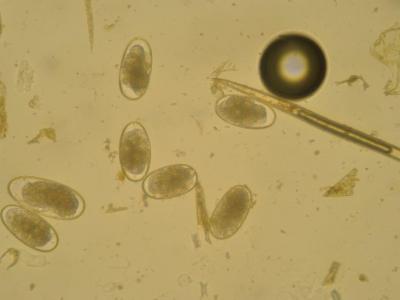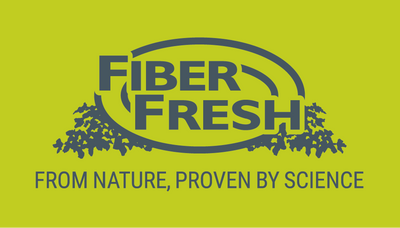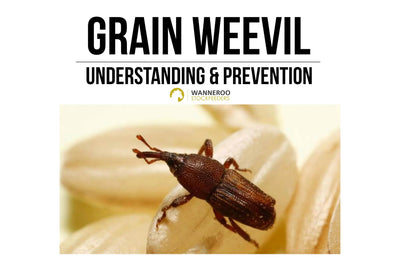Strategic deworming involves the use of fecal egg counts to identify low, moderate and high parasite egg shedders. The “high shedders” are those horses that are responsible for most of the parasites that are passed onto pasture. These high shedders are then wormed appropriately to control their level of infection, whereas horses with much lower worm burden are given a dewormer at less frequent intervals.
In the past, all horses on a farm were wormed at the same time with a rotational wormer at set intervals. Over the years, it has become obvious that no one program will work for all horses. Despite rotating dewormers, parasite resistance is still increasing. Many horses do not need to be dewormed as frequently as people think as they are low or moderate shedders.
Therefor, a strategic deworming program will ensure you are giving the right type of wormer to the right horse at the right time!
1. Perform a fecal egg count (FEC) on all horses on the property that are over 3yo. Young horses are still developing immunity to parasites and may change as they get older. They are assigned to the high shedders group as they are more susceptible to the effects of parasites.
2. The intial FEC must be done at the following minimum intervals after deworming :
- After moxidectin : Wait 12 weeks to collect a faecal sample
- After ivermectin : Wait 8 weeks to collect a faecal sample
- After fenbendazole/oxfenbendazole/pyrantel : Wait 6
weeks to collect faecal sample
3. Based on the results of the FEC, Avon Ridge Equine Veterinary Services will develop a deworming protocol tailored to your farm.
1. Label a zip-lock bag with your horse’s name AND collection date in permanent marker
2. Wait for your horse to pass manure
3. Collect 2 fecal balls from the center of the manure pile into the per-labelled zip-lock bag. For accurate results : - Avoid
contamination with bedding and soil as much as possible. - Avoid sampling from manure that is more than 6 hours old.
4. Remove as much air as possible from the bag, seal tightly and place the sample in the fridge until you have time to drop off in store.
5. Complete the laboratory submission form and payment details (one form per horse). Print clearly if you are not filling the form out electronically. Print the form or get one in store.
6. Place the form AND the zip lock bag with faecal sample in an envelope and mail to :
AVON RIDGE EQUINE VETERINARY SERVICES PO BOX 212 HERNE HILL, WA 6056
You can also drop off your fecal samples to the following locations :
Wanneroo Stock Feeders : unit 1/64 Callaway St, Wangara WA 6065.
Brigadoon Produce : 1125 Great Northern Highway, Baskerville, WA 6056
Call Avon Ridge Equine Veterinary Services (0427 072 095) as soon as samples have been posted so we ensure prompt collection.
Check your email regularly over the next few days as your results will be emailed. Be sure to check your junk/spam folder as your results may go there.
BE SURE TO KEEP YOUR SAMPLES CHILLED IMMEDIATELY AFTER COLLECTION AND UNTIL
YOU ARE READY TO POST THE SAMPLE. FAECAL SAMPLES THAT ARE ALLOWED TO DRY OUT WILL NOT PRODUCE ACCURATE RESULTS IN THE LABORATORY.
It is important to note that a negative fecal examination does not mean the horse is free of internal parasites. Some types of parasites produce eggs only intermittently. Larvae do not produce eggs at all, and may be present in large numbers in a horse with a fecal egg count of zero. In addition, tapeworms, bots and pinworms are not seen on a routine faecal egg count. The results are most useful when several horses on a farm are tested on the same day.




